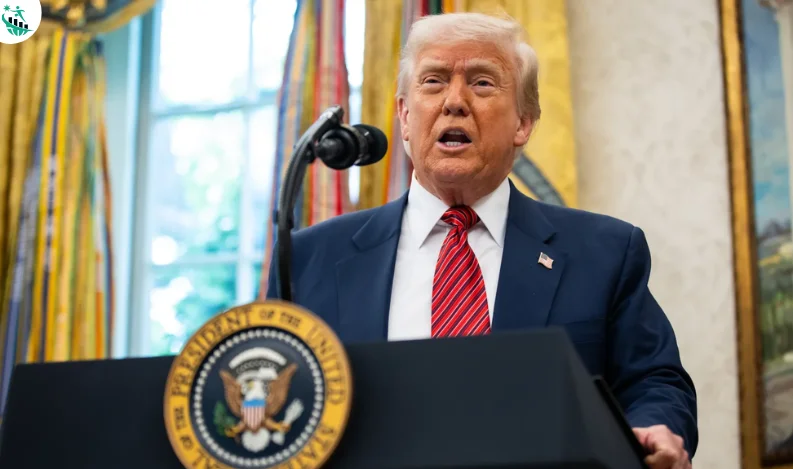
Trump Slaps Extra 100% Tariff on China, Adds Controls on Critical Software
President Donald Trump announced Friday that the United States will impose a new 100% tariff on all imports from China starting November 1, in response to Beijing’s fresh export controls on rare-earth minerals. The move effectively doubles existing duties and marks one of the most aggressive trade measures in recent years.
Trump said the tariffs would apply “over and above any tariff that they are currently paying” and added that Washington will also introduce export controls on all critical software beginning the same day. The decision, he said, comes after China unveiled plans to restrict global exports of rare earths, materials crucial for industries such as automobiles, defense, and semiconductors.
“China has taken an extraordinarily aggressive position on trade,” Trump wrote on Truth Social, accusing Beijing of threatening the global economy with broad restrictions on key minerals and technologies. “This affects all countries, without exception, and is a moral disgrace in international trade,” he added.
The Chinese Ministry of Commerce announced Thursday that, starting December 1, foreign entities must obtain special licenses to export any products containing more than 0.1% rare-earth content or manufactured using Chinese refining and magnet-making technologies.
Trump’s latest action escalates an already tense economic standoff between the world’s two largest economies. Nearly every product imported from China already faces tariffs ranging from 7.5% on consumer goods to 50% on industrial metals like steel and aluminum. Analysts from Wells Fargo Economics and the Federal Reserve Bank of New York estimate that the effective average tariff rate on Chinese imports now stands at about 40%, even before the new increase.
The announcement followed Trump’s earlier warning that he might cancel his meeting with Chinese President Xi Jinping at next month’s Asia-Pacific Economic Cooperation (APEC) summit in South Korea. However, he has not formally confirmed any change to his schedule.
In his post, Trump argued that China’s export strategy was “obviously a plan devised years ago” and accused Beijing of trying to dominate international markets. He said the U.S. response was necessary to protect American industries and ensure “fairness in global trade.”
The additional tariffs and export restrictions signal a sharp intensification of trade hostilities. Economists warn that the measures could drive up manufacturing costs, disrupt global supply chains, and worsen inflationary pressures. However, the White House maintains that the move is essential to counter what it calls China’s “unfair trade manipulation.”
Rare earths, a group of 17 metallic elements vital for making electronics, military equipment, and green technologies, remain one of China’s most powerful economic levers. The country currently supplies nearly 70% of global rare-earth demand, giving it significant influence over industries that depend on these materials.
As tensions rise, markets are bracing for more volatility. Investors fear that the escalation could trigger another wave of retaliatory actions from Beijing and spark broader global trade disruptions similar to those seen during Trump’s first term.



Recent Comments:
No comments yet.